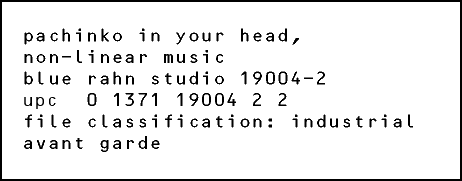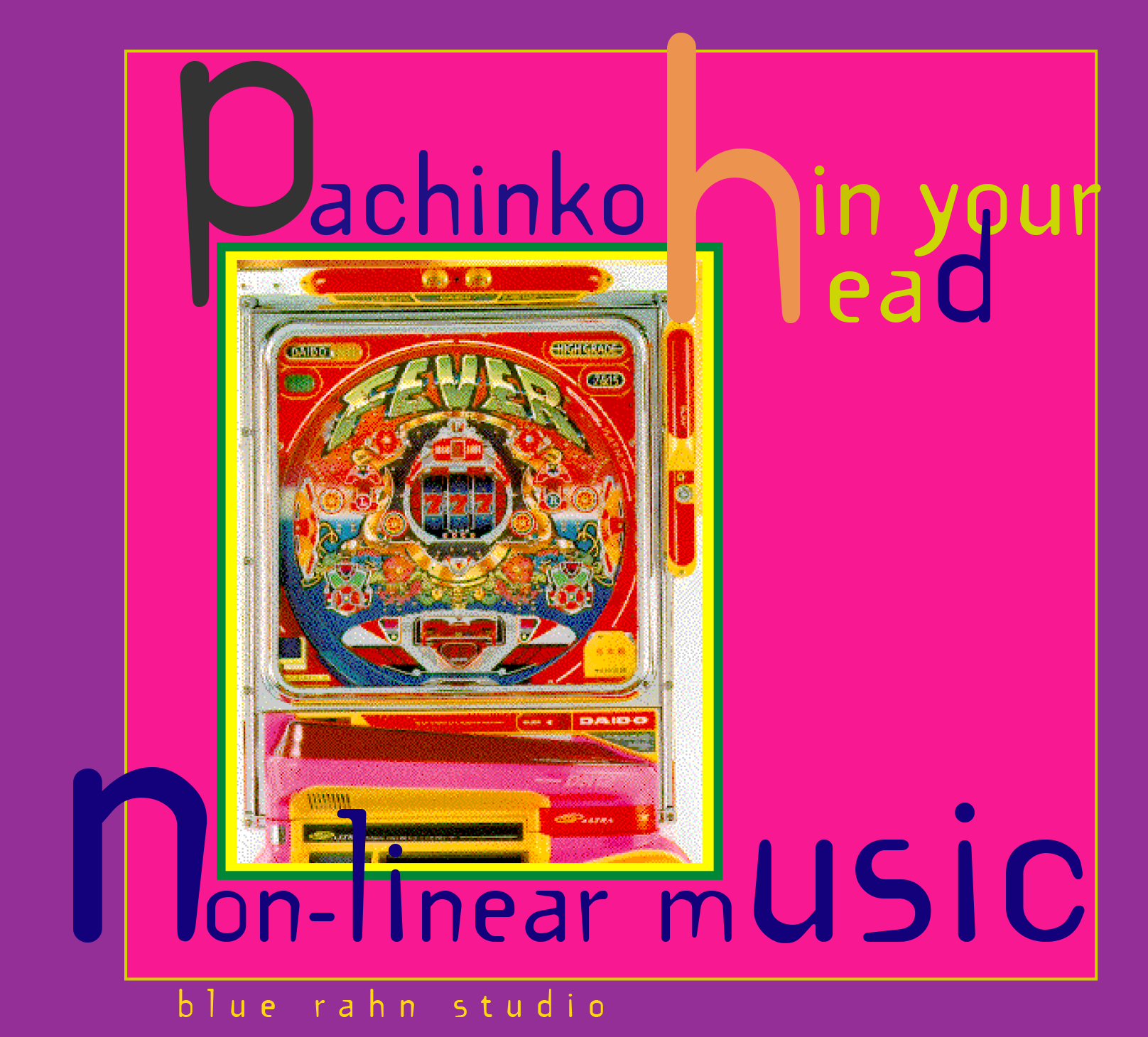|
|
 
Wenn Hunderte von Spielautomaten klingeln, rasseln, blubbern und ihre kleinen elektronischen Melodien singen, dann ist der Effekt eine Trance, wie sie kaum ein Schamane wirksamer inszenieren könnte. In diesem Fall handelt es sich um eine besondere Art von Glücksspiel, dem japanischen Pachinko. Millionen kleiner Kugeln laufen durch Hindernisse ins Ziel oder ins Aus. Hier lässt sich herrlich assoziieren: Dada, Chaostheorie, Zufallskomposition, Futurismus, John Cage, Wolf Vostell. Der Sound von Pachinko bleibt bei allem so einzigartig wie das blecherne Outfit dieser Kultscheibe. the projectVIEW AS PDF: On the Subject of Industrial Music by Eckart Rahn Pachinko in Your Head is the latest groundbreaking industrial avant garde recording produced and recorded in Tokyo by Eckart Rahn. Known throughout the independent market as the record label mogul of the Celestial Harmonies, Black Sun Music, Fortuna Records, and Kuckuck Schallplatten labels, Rahn never ceases to surprise the music industry with his foresight. He is credited for pioneering recordings that shaped the new age genre, such as Paul Horn's Inside the Taj Mahal (11062), Deuter's early work, and he was the first to introduce Kitaro to the world outside of Japan. Of recent efforts, he is credited with shaping the now popular, but increasingly commercial, world music genre with authentic traditional recordings accompanied by scholarly/academic annotation (setting a higher standard for the industry) such as the pioneering historical collections of The Music of Vietnam (19903), The Music of Cambodia (19902), The Music of Armenia (19909), and the 17-CD, 15 volume, The Music of Islam (19907) series. Having said that, it should come as no surprise, really, that Rahn introduces yet another pioneering recording, however, industrial in this case. Fascinated with the chaos theory (seemingly random events) which when encountered in very large numbers establish a new order of predictability if not beauty and symmetry. Everyone can relate to the sound of raindrops hitting a tin roof, and in that sound a pattern—or rhythm— seems to emerge. When you listen to this recording, you hear the natural sound of a multitude of steel balls working their way through a number of pachinko machines. Pachinko is Japan's most popular pinball game. It is estimated that some 10 million Japanese play the game regularly in parlors, some of which contain several thousand machines. When there are 1000-2000 machines operating simultaneously, there could be somewhere near one million balls in circulation. Coupled with the multitude of electronic sounds emanating from these machines, their addition at times creates an almost continuous sound. La Monte Young tells the story of how he listened as a boy to the whirring of overhead telegraph lines in his boyhood home in rural Idaho, and how somehow an imaginary rhythm seemed to emerge from the slight variations of the continuous sound. Many believe that this experience led to the musical form referred to as minimalism which is, after all, based on the idea of seemingly endless repetition of ever–changing miniature patterns. In Pachinko In Your Head, an imaginary rhythm appears to be emerging from the chaos of interfering sounds, sometimes when concentrating, but occasionally only when not concentrating. This groundbreaking recording challenges all listeners to discern for themselves the presence of such rhythmic patterns and suggests that chaos also applies to art and time and music in their various unknown ways. |
|
|
 |


